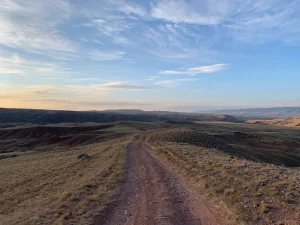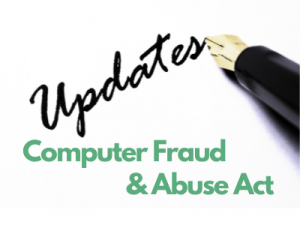Versata Software, Inc. v. Ameriprise Financial Services, Inc. began as a garden-variety breach-of-contract claim in Texas state court. Versata claimed that Ameriprise, a licensee of its Distribution Channel Management software, had breached its contract by hiring unauthorized third parties to work on the software. Ameriprise counter-sued, alleging that Versata’s software incorporated third-party software licensed under the GPL, obligating Versata to license the entirety of the DCM software to Ameriprise under the GPL, and that Versata had failed to do so.
Almost the Case We’ve Been Waiting For
In many ways, this looks like the GPL case that lawyers for commercial software vendors have long feared: a company builds a proprietary software product on GPL-licensed software and (naively? nefariously?) skirts its copyleft obligation, then a licensee claims a right to the whole thing under the GPL. The court even describes the GPL in classically fear-mongering terms as a “viral” license that “infects” its host and “requires it to become open source, too.” The problems with this analogy are well documented—you can’t “catch” the GPL if you’re paying attention, and it’s unlikely that a court could ever compel a party to license proprietary code under the GPL for breaching its copyleft obligation—and it’s troubling to see a court adopt it. Regardless, procedural reasons prevented the court from ever reaching this thorny issue. When Ameriprise brought its counter-claim that Versata breached the GPL’s copyleft provision, Versata argued that the claim could not be heard by the state court because it was a claim under copyright law, over which the federal courts have exclusive jurisdiction. (This is known as a “preemption” claim, meaning that the federal Copyright Act preempts any state claim related to the subject matter of the Act.) The federal court took up the case, at Ameriprise’s request, solely to resolve the issue of whether the breach-of-copyleft claim was preempted.The Ruling: Breach-of-Copyleft Claim not Preempted by Federal Copyright Law
A state-law claim is preempted by the Copyright Act if the claim is within the subject matter of copyright law and the claim’s elements are the same as the elements of a copyright infringement claim. The court held that the GPL’s copyleft provision imposed an obligation over and above what copyright law requires—i.e. an affirmative obligation to provide source, rather than simply an obligation not to copy the software without permission. Because the copyright law does not specifically protect the right of a software licensee to receive source code, the court ruled, it does not preempt a claim to enforce that right. Finding the claim not preempted, and finding no other basis for exclusive federal jurisdiction, the federal court remanded the case back to the state court.Revisiting Jacobsen v. Katzer
One inevitable question this ruling raises is how, if at all, it relates to the Federal Circuit’s ruling in Jacobsen v. Katzer. Jacobsen held that the breach of a free/open source software license was an infringement of the underlying copyrights if the breach was of a “condition,” or a term that “limits the scope” of the license, rather than a “covenant,” or a promise made in return for the license. The answer is very important for software producers: if a breach of the license is copyright infringement (i.e. because the provision breached was a condition), the copyright holder can sue in federal court, request an injunction preventing further distribution of the software, and seek statutory damages; if it’s merely a breach of contract (i.e. because the relevant provision was a covenant), these remedies are not available to the copyright holder. Jacobsen held that the licensee’s obligations in an open source license (specifically the Artistic License, used mainly by the Perl community) are conditions, in part because they are essential to preserving the essential purpose of the license, which is to secure the benefits of downstream development to the original developers. In light of Jacobsen, does Versata say anything one way or the other about whether the GPL’s copyleft provision is a covenant or a condition? In a word, no. Unlike in Jacobsen, Ameriprise does not involve an open source developer suing a licensee—Ameriprise is a licensee of both Versata’s software and the third-party GPL-licensed software. Consequently, it couldn’t bring a claim for copyright infringement, because it doesn’t own any of the copyrights at issue. Rather, Ameriprise claimed that, as a third-party beneficiary of the GPL, it had the right to enforce the copyleft obligation.Careful What you Wish For: XimpleWare Sues Versata and Ameriprise
Fortunately, we don’t have to speculate about whether Jacobsen still carries weight. XimpleWare, the company that produced the GPL-licensed VTD-XML software allegedly misused by Versata in this case, has sued Versata and Ameriprise for copyright infringement on the basis of Ameriprise’s allegations in Versata v. Ameriprise. On February 4, 2014, the judge in XimpleWare v. Versata denied Ameriprise’s motion to dismiss XimpleWare’s copyright infringement claim, holding that XimpleWare had properly pleaded the claim under Jacobsen‘s test:XimpleWare has alleged Ameriprise reproduced and distributed the software outside of Ameriprise and to non-employees, thereby acting outside the scope of the GPL. XimpleWare has therefore stated a claim of copyright infringement.
]]]]> ]]>




